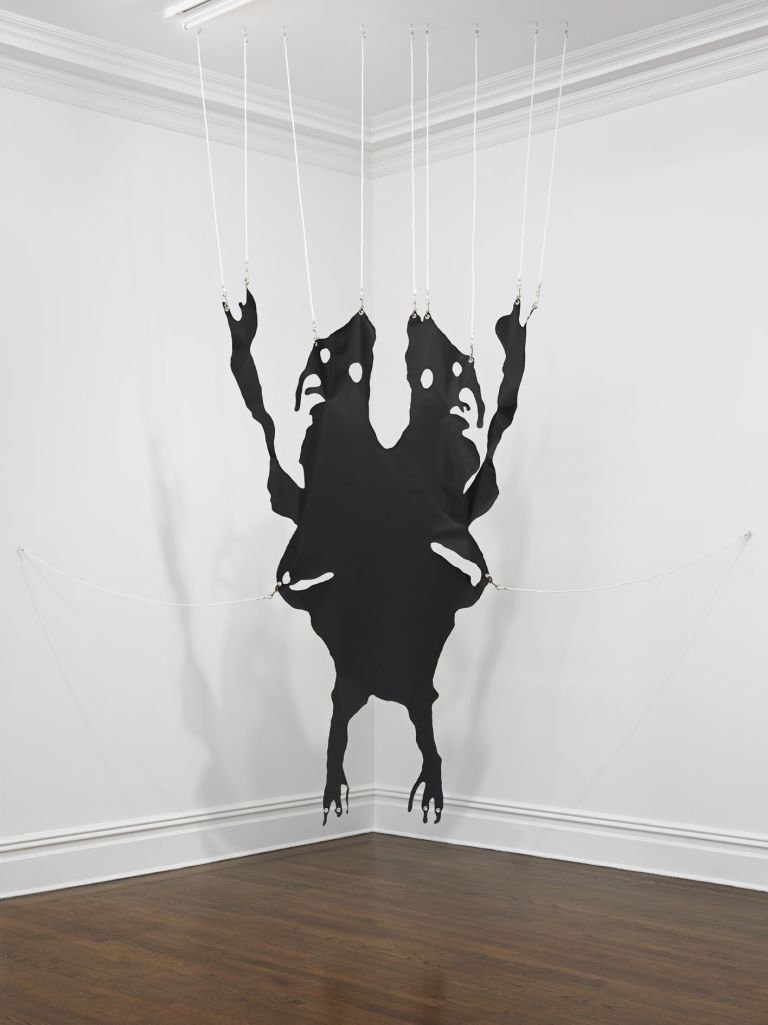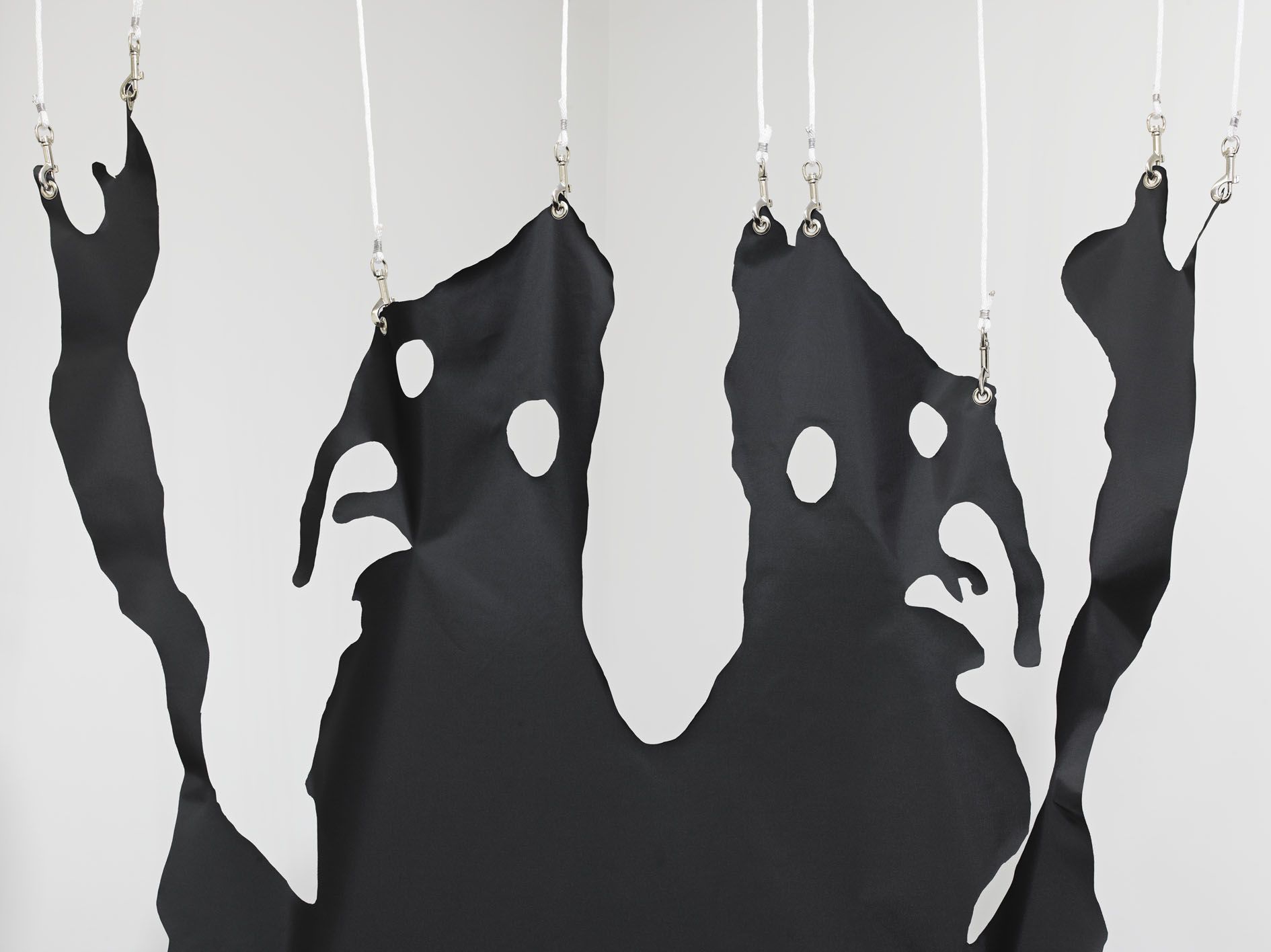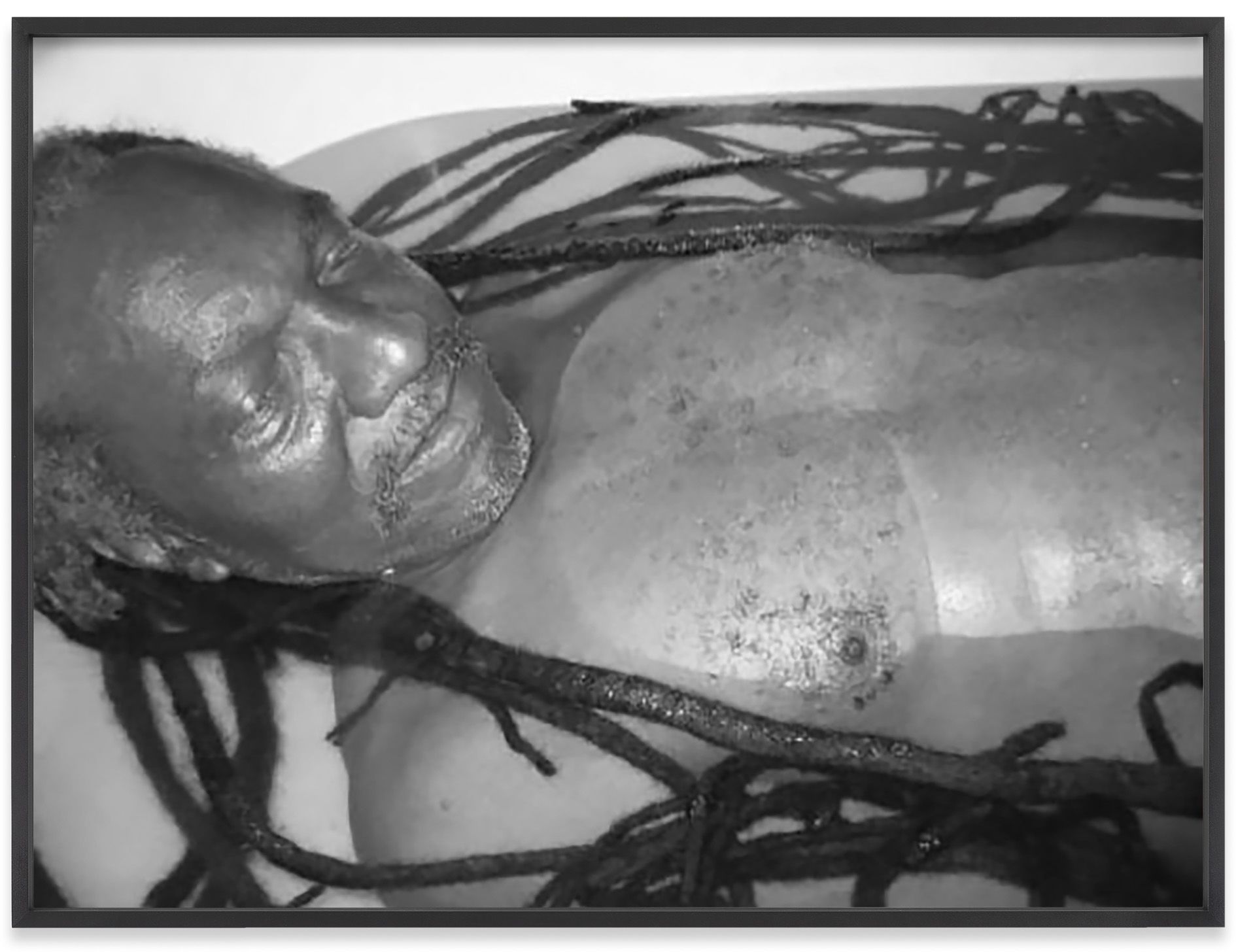Spirit Crossing, an exhibition by Senga Nengudi at the New York gallery, illuminates in-depth, for the first time, an important body of work created by the artist while working in New York in the early 1970s.

Senga Nengudi
Twins, ca. 1972/2023
Nylon
215.9 × 88.9 cm
85 × 35 inches


















































